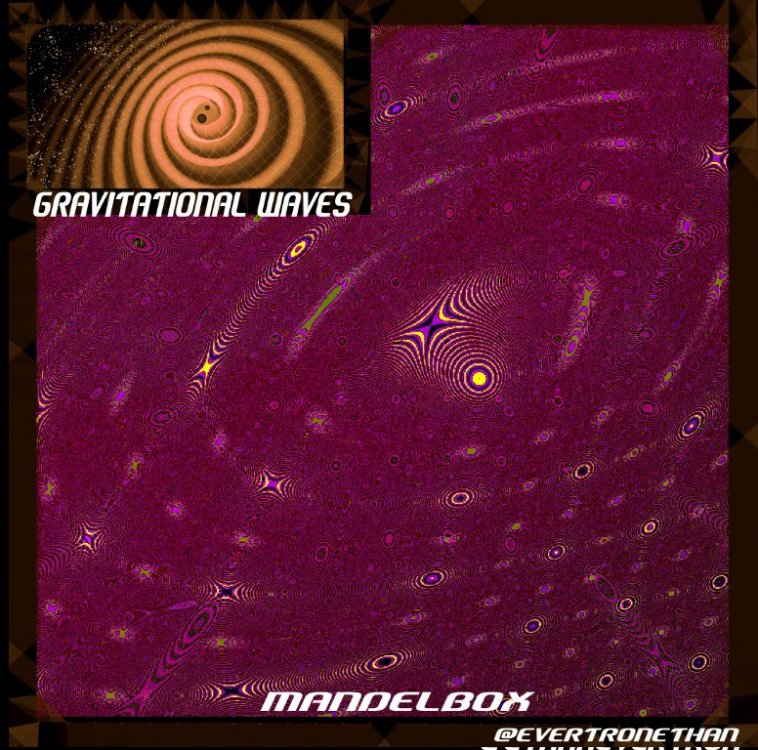Leaderboard
Popular Content
Showing content with the highest reputation on 11/20/19 in Posts
-
I think it requires a rather profound misunderstanding of how science funding works to make that argument. To explain for those following - say I apply for a federal grant. The whole packet might be 50-100 pages of densely written technical documents. I will probably take me a month or more to put together. It has a 10-20% chance of being funded, and if it's a big one, might net $1 million dollars of funding. My institution immediately takes 55% as overhead. The vast majority of the rest will pay for the salaries of the people I employ. Some will go towards lab costs. If I'm lucky I might get to claim one month of summer salary (for the three months of the year the university doesn't pay me) for 3-5 years. Ergo, I might actually pocket a few thousand dollars at best. On the other side, Ian Plimer - a mining geologist who doesn't even work on climate science, pockets over $400,000 per year from the fossil fuel industry, and "coincidentally" is an ardent critic of climate change. If I'm going to make up data or espouse a false belief for profit, I'm sure as hell not going to be saying climate change is real.3 points
-
I've been exploring fractals as part of a rather long term philosophy project and have had a good deal of success modeling the simplest structures of my system with the folded geometry of the mandelbox. In addition to meeting the logical constraints I've established it seems that the geometries of the Mandelbox are capable of recreating nearly every photo and representation of quantum holography I've come across. I've also found that generating interference patterns within the fractal allows me to model dynamic processes and larger scale concepts in physics like gravitational lensing, gravitational waves, fresnel distortion and general CAS emergence. You can see all of these properties in motion at my youtube channel url deleted This video is a general preview of my work. url deleted I would love some feedback on these findings, some representations are more obvious than others and the interference based visualizations are difficult to see with youtube's compression so larger resolution representations are linked in the description. Thank you for your time, I hope you find these useful1 point
-
What experiments are you talking about? And if you don't know, how do you know you can "prove" it? You should forget about "proof", and concentrate on how you can provide evidence of your claims. The more evidence to support it, the more persuasive your argument will be. Define EXACTLY what you mean by "I can do telepathic ability". Define what you mean by "send messages directly mind to mind". The most important thing at this stage is for you to decide what would show your claims to be FALSE. What test failed, or what message not sent would show that you CAN'T do telepathic ability? Your claims need to be capable of falsification before we can take them seriously. Once you can do that, then you should be able to take any standard test for ESP, using validated methodology. They'll be looking for results that go beyond statistical anomaly. Or if your definitions are different, perhaps then someone could suggest a way to test them. Based solely on your OP, I would expect you to be able to send a random phrase as a private message to one of our staff members, then send the same phrase directly to my mind with your telepathic ability. When the staff member and I confer, I should be able to tell them, "Blue peninsula hopping trousers twisted badly", and they should be amazed that I said the exact same phrase as you. That's when everyone here suddenly becomes very interested in your thread. Got anything like that?1 point
-
Unless you expect it. Castles were built with staircases with an "odd" stepp in them to trip enemies who were climbing the stairs. I learned about this interesting fact in a talk about the safety of modern stairs where , as they pointed out, badly made stairs are still killing the unwary. Here's a trivia question for you ( the answer is at the end of the post) Roughly how many people are killed by falling on stairs each day in the UK? Interesting fact for the day. If you have a staircase where the steps are uneven you can always make it even by adding planks (of various thicknesses) to the steps. This is an important result because adding to the treads is easy but taking stuff away is hard. It's also (I think) always possible to make all the steps the same "length" as well. So there really is no excuse for badly built stairways. (About two, btw- did you guess right?) Our brains are pretty good, but we often rely on reflexes which don't use the brain. I'm not sure which category this phenomenon falls into . I'd be interested in finding out. I'd be even more interested in knowing how they found out.1 point
-
What is described is somewhat related to an interesting phenomenon called the size-weight illusion. It is a multisensory phenomenon in which, roughly speaking larger objects feel heavier, even if they are not. The interesting bit is that these studies look at the interaction between feedforward (anticipation of weight) and feedback information. In the case of OP it is fairly clear, the discrepancy between anticipated weight and experienced one is large, and as such the feedback mechanism cannot cope with the excess forces (the jolt may be a surprise reaction due to the perceived discrepancy). However, in cases where, for example two objects of same weight but different size are presented, the muscle stiffness may be different before lifting the object (as the feedforward mechanisms anticipates that the larger object is heavier) but then the feedback kicks in and adjusts closer to the actual weight. The perception, however, is still that the larger object is actually heavier. It should also be noted that anticipation is common to basically all animals with an CNS, not only to arboreal ones, as relying on feedback mechanisms is typically too slow for most dynamic situations. For example, catching a ball requires anticipation of its flight path. Some simpler animals have faster feedback loops in which locally for example legs convey information regarding the status to other legs, without need for central coordination. But even then in hunting spiders one has found evidence that they may anticipate to some degree anticipate prey behaviour.1 point
-
While there is an argument for putting one more color beyond blue, Newton's reason for adding 2 had to do with his religious belief that the number 7 held a special significance.1 point
-
OK, I am a bit bored, so I looked at the video. Same kind of errors over and over again. At 2:15: 'The least controversial definition I could come up with: Free will is the capability to have acted differently'. Obviously he is unaware of the many pages of philosophical articles that are already written about this definition. There are (at least) two ways of understanding this: The strict metaphysical reading: in a determined universe everything is fixed, so every event happens, or happened exactly as it follows of causal conditions before. In this sense there is no way of 'acting differently' The modal (sometimes called 'iffy') sense, meaning that if the circumstances would have been slightly different, something else would have happened. One of these slight differences is our will. To give an example of the second reading: one day I go to a vegetarian restaurant, and the next day to a 'normal' restaurant. Is the sentence 'I could have ordered a beefsteak' true or false? Obviously there is no beefsteak on the menu of the vegetarian restaurant, so in this case the sentence is false. But for the 'normal' restaurant it is true: it was on the menu card. However, I took a vegetarian dish in the 'normal' restaurant. So the sentence is non-trivial true, even if I ordered something else. It was my will that decided differently. So really, in this sense, I could have ordered beefsteak. And it has next to nothing to do with determinism. Nearly all non-compatibilist determinists take the metaphysical meaning. At 2:30: The idea is that you are in complete control of your actions, and any decisions you make are determined only by your conscious self. First, he does not define what this 'conscious self' is. Is it a soul that can only observe and is completely powerless? And what is complete control? Does it mean control without determined history? That is nonsense too: a thermostat controls the temperature, but it is a completely determined system. There is no contradiction between being in control, and being determined. At 4:15 Can you choose not to want something? Another nonsense definition. Free will is at most being able to act according your own wishes and beliefs. 'Free will' does not mean 'free from influences': it means that a person can choose his actions, that she is 'free to act', not who or what she is. So, @Robert Wilson: why did you post the link? What do you think? PS. You should look at this: Free Will, Determinism and Choice, and its followups.1 point
-
One of the representations that has always bothered me, being a scientist, is that a "scientific consensus" is a bunch of us sitting around in tweed jackets, smoking pipes, sipping scotch and all nodding in agreement with one another. A scientific consensus occurs when a bunch of different data all converge on the same conclusion. Provided it's collected using best practices, data can't be political in of itself, it just, is1 point
-
1 point
-
Today I learned that owl have really long legs (that they keep discreetly hidden) and that baby owls look just like aliens:1 point
-
! Moderator Note This is a science forum. If you don’t want science-based answers don’t ask questions.1 point
-
Why don't you tell us what answer you'd like, and we'll provide that instead. If you don't want a scientific answer, then don't ask questions on a SCIENCE forum.1 point
-
Galilean relativity had the concept that the laws of physics were the same in all frames, but AFAIK time and space were absolute, which worked if c was infinite.1 point
-
That's a pretty spectacular failure of logic. I defy you to find any science where this isn't the case: "informed guesswork" (i.e. predictions coming from mathematical models) and the science still happening and we continue to learn, because it's not "done".0 points
-
I don't deny any religion. I'm just waiting for decent evidence. And the burden of proof is on the believers.-1 points
-
The point is that by using terms like deniers, people are treating the subject like a religion. And constantly talking about the belief, rather than the evidence for it, is much the same. Even the so-called "consensus" is religion-like. I'm sure there is near 100% consensus that Jesus was god, among Catholic clergy. Although to their credit, they don't quote that as some kind of evidence. If you want to be regarded as a science, act like scientists, and not like adherents.-1 points
-
-1 points
-
Trust is not the same as faith. Trust in the institutions, practices and ethics of science is not religion. Given that the work of scientists is documented and widely accessible it is available for sceptical review and critique - but this takes knowledge and expertise. Being wrong is bad for a scientist's reputation - and when they are wrong it is documented. There are sound reasons to have trust in the error correcting nature of those practices and - because it is so thoroughly documented, misconduct or conspiracy is difficult to sustain. If, as a sceptic, you don't actually engage in actually doing the work of critiquing - which involves studying, in this case, climate science - any conclusion that it is wrong is a mere personal preference, a belief that lacks any sound basis. It is not up to people who trust science based advice to convince the doubters, nor the scientists either; it is within the body of their works that scientists present the evidence and reasoning. Meanwhile, as the initial post notes, we are experiencing weather events that are in keeping with a world with AGW. I suggest that when examined closely these are within the range of what climate model based projections have "predicted" - the middle of the spread outcomes may be being exceeded. That doesn't make it wrong any more than outcomes that are at the high end of the range not occurring - the worst case ones that, rightly and wrongly get extra public interest and attention - makes climate science wrong.-1 points
-
You can't see what's wrong with that statement? Climate science is based on informed guesswork, it's all about projections that go many decades into the future, when there are complete unknowns involved, like future volcanic and solar activity, among many many others. And yet, you regard any difference of opinion as "denying the science". Well, the science isn't done. There are many poorly understood factors, like clouds. I'm disagreeing with the guesswork, not the science. Projection of climate for the future IS a best guess. Climate models are tools, to help people with their guesswork. They don't remove the guesswork element. No, because firstly, it doesn't involve guesswork about unknown unpredictable elements, and secondly, it's been tested experimentally hundreds of thousands of times, and always got the same result. Also, if anyone disagrees, it is perfectly open and easy for them to show why the inverse square law is wrong, and collect their Nobel Prize. So the consensus doesn't involve a leap of faith.-2 points














